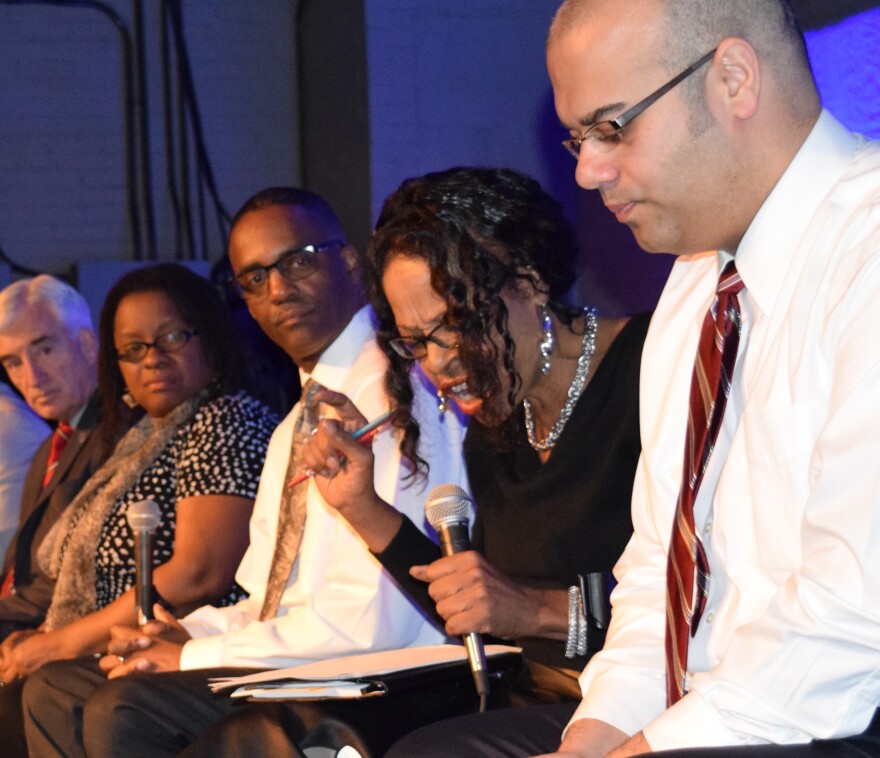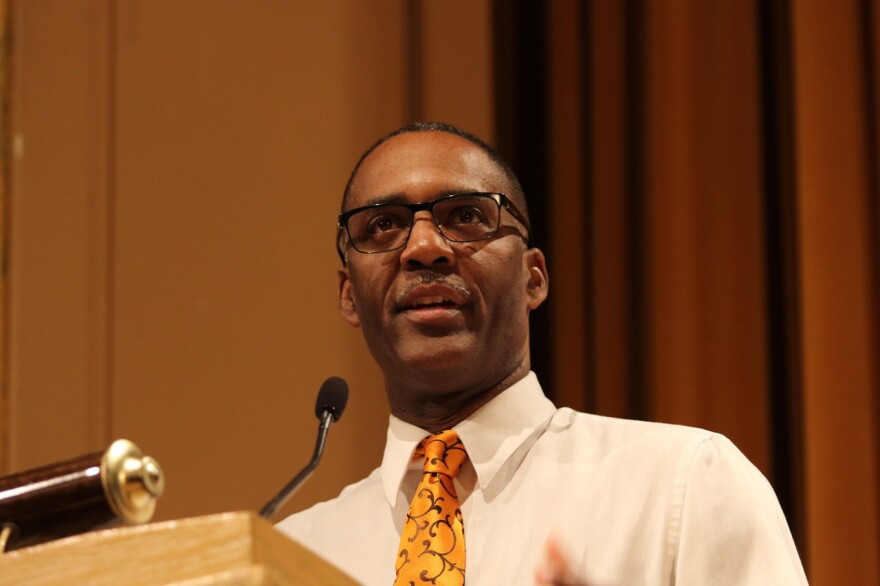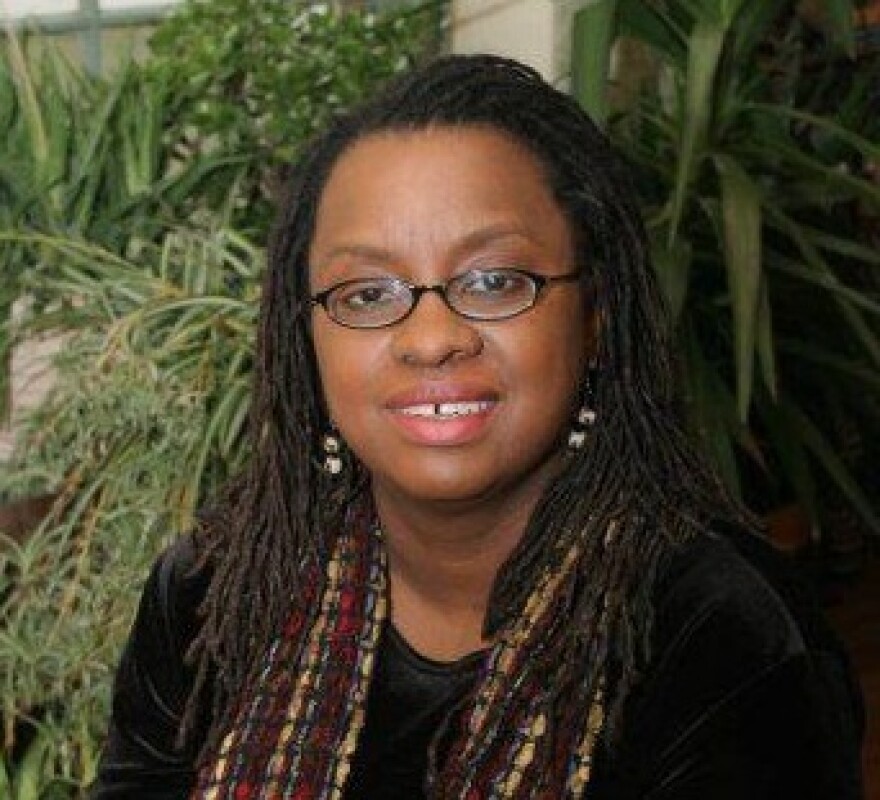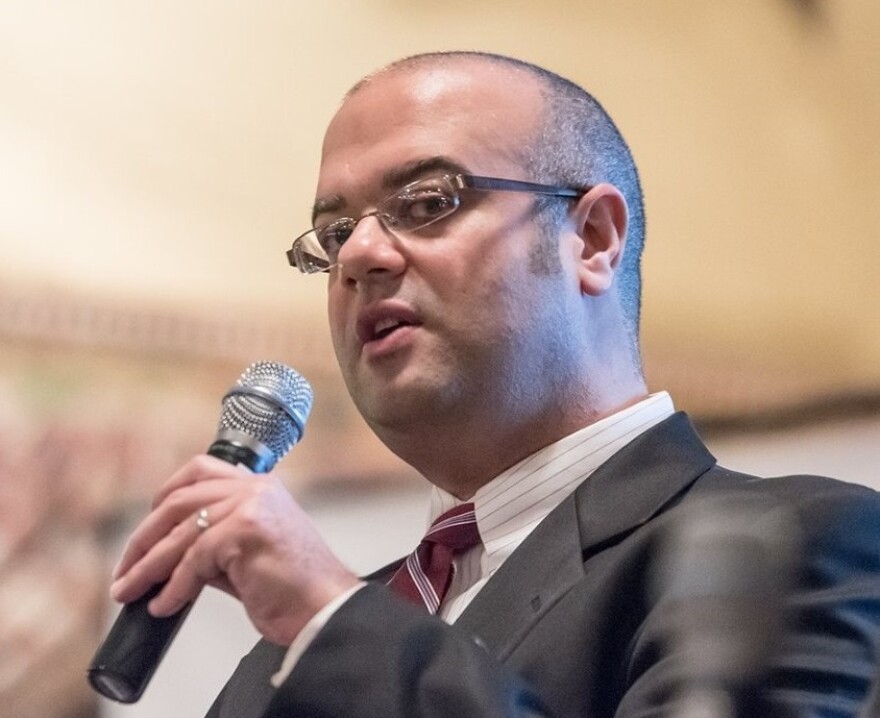What can I do to help decrease segregation? What is being done to alleviate the problem? What can we do to change how segregated metro Milwaukee is?
During WUWM's series, Project Milwaukee: Segregation Matters, the most common questions we received from YOU regarding segregation dealt with solutions.
Solving this issue will not be easy. However, several ways to help reduce segregation in metro Milwaukee did emerge during our coverage.
Have compassion

Dennis Walton was a panelist at the MilMag Live! / WUWM community forum on March 6 that focused on solutions to segregation. The co-director/outreach coordinator of the Milwaukee Fatherhood Initiative says no one person has all the answers. But he offers this suggestion:
If we can just begin to become more compassionate and more nurturing and more understanding of our differences, we can become to appreciate those things and drop our prejudice. Have an appreciation for each other when it comes to human values, because we all have the same basic needs regardless of what color we are.

Another panelist, Dr. Pamela Malone of MATC's department of Sociology, says it's also important for people to treat themselves with compassion:
Enhance your own sense of self-worth. A lot of us are lacking in self-esteem and self-worth; we wouldn't be downing other people if we weren't. So I would say increase your sense of self-worth, and then you will view others as worthy and act accordingly.
Religious groups are among those working to break down barriers between metro Milwaukee's black and white populations. We invited the Rev. Gregory Lewis, who heads Pastors United, and other people of faith to the WUWM studios for a conversation about solutions.

Lewis says it's important for people to be truthful: to acknowledge biases they may hold, then really get to know people, instead of believing stereotypes. He says for some people of faith, religious beliefs may provide a template:
I just think what people really overlook is the fact that love is stronger than hate. You know, we got to learn how to accept each other. Love the Lord with all your heart and all your might and all your soul, all your mind, and love your neighbor as you love yourself. And that's kind of a simplified solution, but that's really the solution.
Be willing to get uncomfortable

If you want to begin integrating the community, you have to start with your own actions, according to Reggie Jackson, head griot of America's Black Holocaust Museum. He says it's important for people to get out of the comfortable "bubbles" they live in, and get to know people in other bubbles:
Expand your world view. Start a conversation with a stranger. You'll never know where that conversation will lead you. That's what we have to do. We have to be willing to build relationships with people and stop walking around afraid of having conversations.

For Venice Williams, executive director of Alice's Garden Urban Farm, building relationships means going out on a limb by inviting strangers out to eat:
Every single week of my life for probably the past seven years, I take someone who I've never met, I've never seen, out to lunch. Some people run from me when I walk up to them on Wisconsin Ave. or wherever, I am and I'm like: "Would you like to go out to lunch? It's lunchtime, are you hungry? I'd like to get to know you, have some questions, let's just get to know each other." So you have to build bridges. We need to build bridges to one another, and some of that means you come off as crazy.
Williams and Jackson were among the panelists at the MilMag Live!/WUWM forum. So was Waukesha County Board Chair Paul Decker. As the suburban representative on the panel, he faced criticism from audience members, over the lack of diversity in many suburbs. Decker says he's well aware of the concerns. He says because he wants to change the status quo, he's eager to participate in conversations, like the one at the forum. He says the same can't be said for some suburban elected officials, who might not wish to join such a frank discussion about segregation:
We have to overcome it any way we can. First of all, you got to reach out, and not every step is going to be the most comfortable step in your life.

Margie Gibbons of New Berlin says part of being uncomfortable means standing up to racist behavior -- not leaving it unchecked:
This political season that we've just gone through has not created racist attitudes, it's let them out of the box. And it was startling to me as this whole thing unfolded, because I was very blind to it for a long time. And most of the major religions of the world hold that we are created in the image of God. So I think that people, at a very basic level, if they try to remind themselves of that and then make sure that not only are they treating the people they come into contact with kindness and respect, but find the courage to call out someone that you know and care about when they are not treating others with kindness and respect.
Make deliberate efforts to reach out

Rebecca Moczulewski is a visual artist who lives in the suburbs. She says in a metro area as segregated as Milwaukee, you may have to make deliberate efforts in order to connect with people of a different race or ethnicity. She says she's been able to get close to people from Milwaukee because they've worked together on social justice issues, coordinated by faith groups:
I feel that my more diverse friendships and relationships have taught me more about myself, have helped me become just a fuller person. If we could suspend our judgment and our fear even for a moment to take advantage of opportunities -- any opportunities you can find -- to meet and engage with people of color or people who are different from you, it's so enriching and enlightening.

The Rev. Joseph Ellwanger of Milwaukee has worked for social justice issues for decades, including in the 1960s when he marched with Dr. Martin Luther King, Jr. in Alabama. At the time, Ellwanger was a pastor in Birmingham. He says the segregation that remains today will disappear gradually, if a lot of people are engaged at a lot of levels. He says adults can make a big difference by finding ways for children to get to know kids from other backgrounds:
(Both black and white people) have to be very conscious of reaching out and making sure that, especially the children, get an experience of diversity. Without that, we know what's likely to happen. The culture is self-perpetuating. It has to be challenged and it has to be broken or otherwise it just continues the same.

Cardinal Stritch professor emeritus Dr. Dan Di Domizio lived in Milwaukee's Sherman Park neighborhood for decades, before downsizing and moving to Brown Deer. He says he enjoyed living in one of Milwaukee's integrated neighborhoods, and he likes the diversity he's found in Brown Deer. Yet Di Domizio says most suburbs are mainly white, contributing to the division between many black and white residents in the Milwaukee metro area. He seen evidence of the divide, when volunteering at the St. Benedict's meal program:
Groups will bring youth groups from the suburbs and they will eat a meal there and maybe help out. And the kids look frightened to death because they've never been there. But if they sit at a table and they talk with some of the guests, and I remember two of them came back to me and they said "this was really great." And what he was saying was "they're just like we are, they're just like we are." That's not enough, though, because they then drive back, and sometimes their parents don't even want them to go. So somehow or other we've got to make that contact with more depth.
Promote policies and decisions that could make a difference

UWM researcher Marc Levine has found that many of the African Americans in metro Milwaukee live on the north side, in areas of joblessness and intense poverty where there are limited opportunities for change:
You have segregation, you have a declining economy, you have a concentration of economic distress, and then all of these indicators kind of pile up on one another and you have again what I call kind of the "zone of cumulative disadvantage."

Levine says financial challenges piled up in those areas, after manufacturers that employed thousands shut their doors. So some people, like Tim Sullivan, are working to lure employers to the north side. Sullivan is the former head of Bucyrus and now runs a company called the REV Group, which makes vehicles such as buses and ambulances. Last August, he announced that he'd like to put a REV Group plant in the central city, and is encouraging other manufacturers to move to the area:
Until we get companies willing to come into the north side and establish job opportunities, we just don't think we're going to move the needle. We're just not going to really correct the situation that evolved when the jobs went away.

Meanwhile, some faith leaders are promoting bus routes that take people from the city to more plentiful jobs in the suburbs. Last fall, the Rev. Willie Brisco championed the couple of bus lines that have been established, while calling for more funding for such routes. He pointed out that there's limited funding for the lines, and said someone must step up to keep the service going:
We have a moral obligation. It's a moral issue, to take care of the least of those and those who are less fortunate.
Angela Moragne owns That Salsa Lady, which sells chips and salsa to restaurants and at farmer's markets. She agrees with the faith leaders who say public transit can make a huge difference in mainly black, low-income neighborhoods, by connecting people to jobs. She says many job openings are in places far from the residents who need them:
So many people I've talked to have said: "You know, yeah -- I would love to work at Amazon or I would love to work at Uline or whatever, but I can't get out there." They're not on bus lines, they don't offer transportation, so you literally, if you don't have a vehicle, or you don't live in that area, you don't have a job.
Moragne was able to carve out her own opportunity, when she was unemployed, by making salsa in her apartment. She says steps could be taken to make such efforts easier for other potential entrepreneurs. For instance, she wants to help establish an incubator kitchen on the north side:
It takes a space...and instead of having just one business in it, you're charging someone $15 to $30 an hour to use it a couple hours. That kitchen is accessible to several different businesses and they can literally incubate, so you can start, grow and sustain your food business out of one location.

Another way to promote change is to become politically aware, according to Nate Holton. He serves as deputy chief of staff for the Milwaukee County Office of the County Executive, and is coordinating the initial efforts of the county's Office on African American Affairs. Holton says elected officials on the local level make many decisions that can have an impact on issues, such as poverty and segregation. They can do things like approve funding for projects, apply for grants and take steps to lure businesses to the city.
Get involved in local government. And not just at election time, get involved between the elections. Pay attention to what the County Board is doing, pay attention to what the Common Council is doing, what the county executive's doing, what the mayor's doing -- all these different decisions that happen on a day-to-day basis. I work in local government and I can tell you a very small group of people can make a difference in local government. I'm not just saying that because it sounds good. I'm saying it because it's true and I've seen it. So get involved, take this energy, see what's going on, see where you can make a difference, and I guarantee you can make a difference.

For more on this topic, explore our Project Milwaukee: Segregation Matters series.
Have a question about segregation? Submit your queries below.
_








